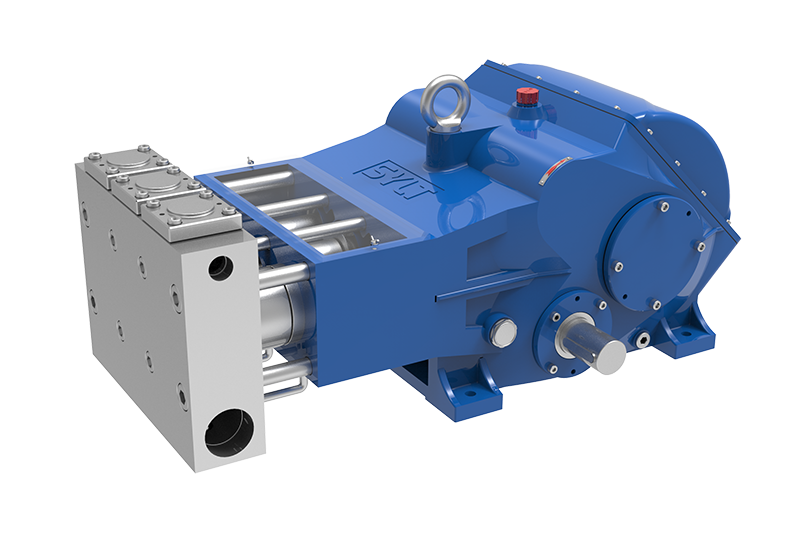The Role of Newest Industrial High Pressure Pumps in Modern Industry
Table of Contents
- Introduction to Industrial High Pressure Pumps
- What Are High Pressure Pumps?
- Types of High Pressure Pumps Used in Industry
- Key Applications of High Pressure Pumps in Modern Industry
- Benefits of the Newest High Pressure Pumps
- Challenges in Using High Pressure Pumps and Proposed Solutions
- Future Trends in High Pressure Pump Technology
- FAQs About High Pressure Pumps
- Conclusion
Introduction to Industrial High Pressure Pumps
In **modern industry**, the demand for efficient and reliable equipment has never been higher. Among the critical components driving industrial processes are **high pressure pumps**, essential for a variety of applications ranging from fluid transfer to cleaning. These pumps are designed to handle liquids at elevated pressures, giving them a crucial role in sectors such as oil and gas, water treatment, manufacturing, and more. Understanding the latest advancements in high pressure pump technology can help businesses optimize their operations and improve productivity.
What Are High Pressure Pumps?
High pressure pumps are specialized devices engineered to move fluids at significant pressures, often exceeding 3000 psi. Their primary function is to generate a high flow rate against resistance, making them indispensable in **industrial applications**. These pumps are built to handle various types of fluids, including water, chemicals, and slurries, depending on their design and materials. The efficiency and reliability of high pressure pumps are paramount, as they directly influence the operational success of many industrial processes.
Key Features of High Pressure Pumps
High pressure pumps possess several defining characteristics:
1. **Durable Construction**: Typically made from robust materials like stainless steel or high-grade alloys, these pumps are designed to withstand harsh environments and high-pressure conditions.
2. **Variable Flow Rates**: Many modern pumps offer adjustable flow rates, allowing for precise control over the fluid dynamics in industrial processes.
3. **Energy Efficiency**: Newer models are engineered for optimal energy usage, resulting in lower operational costs and a reduced carbon footprint.
Types of High Pressure Pumps Used in Industry
Several types of high pressure pumps are utilized across various industrial settings, each designed for specific applications:
1. Positive Displacement Pumps
These pumps move fluid by trapping a fixed amount and forcing (displacing) it into the discharge pipe. They are known for their ability to handle viscous fluids and maintain a constant flow rate. Common examples include gear pumps, diaphragm pumps, and piston pumps.
2. Centrifugal Pumps
Centrifugal pumps utilize rotational energy to move fluids. They are highly effective for low-viscosity fluids and are commonly used in water treatment and chemical processing applications. However, they are less effective at high pressures compared to positive displacement pumps.
3. Multi-stage Pumps
These pumps consist of multiple impellers arranged in series to achieve high pressure. They are particularly useful in applications where significant pressure is required, such as in boiler feedwater systems.
Key Applications of High Pressure Pumps in Modern Industry
High pressure pumps are essential across various sectors, showcasing their versatility and importance:
1. Oil and Gas Industry
In the oil and gas sector, high pressure pumps are crucial for transporting crude oil and natural gas. They are also used in hydraulic fracturing (fracking) processes, where high pressure is needed to inject fluid into underground formations.
2. Water Treatment
High pressure pumps play a vital role in reverse osmosis systems for water purification. They help in overcoming osmotic pressure, allowing for effective filtration and purification of water.
3. Manufacturing and Processing
In manufacturing, high pressure pumps are used for various applications, including cleaning, material transport, and chemical processing. Their ability to maintain high pressure ensures efficient operations in production lines.
4. Firefighting and Emergency Services
High pressure pumps are employed in firefighting systems to deliver water at high speeds and pressures, ensuring effective fire suppression.
5. Food and Beverage Industry
In the food sector, these pumps are used for pasteurization and sterilization processes, ensuring safety and compliance with health regulations.
Benefits of the Newest High Pressure Pumps
The latest advancements in high pressure pump technology offer numerous benefits that enhance operational efficiency and reduce costs:
1. Improved Efficiency
Modern high pressure pumps are designed to minimize energy consumption while maximizing output. This efficiency translates to lower operational costs and a reduced environmental impact.
2. Enhanced Reliability
With advancements in materials and engineering techniques, the newest pumps are more reliable than ever. They are built to withstand extreme conditions, ensuring fewer breakdowns and maintenance issues.
3. Greater Versatility
The latest designs allow for a wider range of applications, enabling businesses to use a single pump type for multiple tasks. This versatility can simplify operations and reduce inventory costs.
4. Advanced Monitoring Systems
Many new high pressure pumps come equipped with smart technology that allows for real-time monitoring of performance metrics. These systems can alert operators to potential issues before they become critical, enhancing maintenance and reducing downtime.
Challenges in Using High Pressure Pumps and Proposed Solutions
While high pressure pumps offer numerous advantages, there are challenges associated with their use:
1. Maintenance and Repair Needs
High pressure pumps require regular maintenance to ensure proper functionality. Neglecting maintenance can lead to reduced efficiency and increased risk of failure.
**Solution**: Implement a proactive maintenance schedule that includes regular inspections, cleaning, and replacement of worn parts to extend the life of the pumps.
2. Safety Concerns
Operating at high pressures poses safety risks, including leaks and equipment failures that can lead to accidents.
**Solution**: Invest in safety training for employees and implement safety protocols to mitigate risks associated with high pressure operations.
3. Initial Investment Costs
The upfront costs for advanced high pressure pumps can be significant, which may deter some businesses from upgrading their equipment.
**Solution**: Consider the long-term savings associated with energy efficiency and reduced maintenance costs when evaluating the return on investment for new pump technologies.
Future Trends in High Pressure Pump Technology
As industries continue to evolve, so does the technology behind high pressure pumps. Key trends to watch for include:
1. Digitalization and IoT Integration
The integration of Internet of Things (IoT) technology into high pressure pumps will allow for enhanced monitoring and control, enabling real-time data analysis and predictive maintenance.
2. Sustainable Practices
With a growing emphasis on sustainability, future high pressure pumps will likely focus on reducing energy consumption and minimizing waste, contributing to greener industrial practices.
3. Advanced Materials
Research into new materials and coatings will enhance the durability and efficiency of high pressure pumps, allowing them to operate effectively in more challenging environments.
FAQs About High Pressure Pumps
1. What is the difference between high pressure pumps and regular pumps?
High pressure pumps are specifically designed to operate at significantly higher pressures than standard pumps, allowing them to handle demanding applications that require higher flow rates and resistance.
2. How can I determine the right high pressure pump for my operation?
Choosing the right pump involves considering factors such as the type of fluid, required flow rate, pressure requirements, and the specific application in which the pump will be used.
3. What are the safety precautions for operating high pressure pumps?
Safety precautions include regular maintenance, employee training, using protective equipment, and adhering to safety protocols specific to high pressure operations.
4. Can high pressure pumps handle viscous fluids?
Yes, certain types of high pressure pumps, such as positive displacement pumps, are specifically designed to handle viscous fluids effectively.
5. How often should high pressure pumps be maintained?
Regular maintenance should be conducted according to the manufacturer’s guidelines, typically at least once every six months, or more frequently if the pump is operating under heavy load.
Conclusion
The role of the newest **industrial high pressure pumps** is pivotal in driving efficiency and innovation in modern industries. Their ability to manage high pressures and flow rates makes them indispensable across various applications, from oil and gas to food processing. As technological advancements continue to shape the landscape, these pumps are becoming more efficient, reliable, and versatile. Investing in the latest high pressure pump technology not only enhances operational performance but also contributes to sustainable industrial practices, ensuring that businesses remain competitive in an ever-evolving market. By understanding the benefits, applications, and future trends of high pressure pumps, industries can leverage this technology to optimize their processes and drive growth.
The 17th China International Powder Metallurgy and Hard Alloy Exhibition
The 2025 17th China International Powder Metallurgy and Hard Alloy Exhibition from March 10-12, 2025, at the Shanghai World Expo Exhibition and Convention Center, Hall H1, B425. We welcome guests to visit.
"Private custom" product design, reliable and durable finished products
"Private custom" like product design, reliable and durable finished products, professional and timely after-sales service. It is the "three basic concepts" that the company adheres to from the beginning until today ".
Experienced market research team, independent product development concept
We have experienced mature market research team, independent product research and development concept, professional design and manufacturing technology so that the company's products can be adjusted according to the specific requirements of customers timely design







